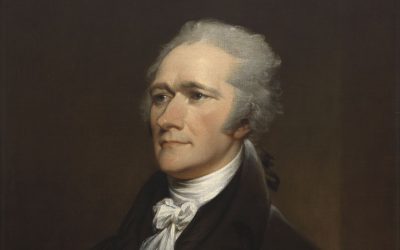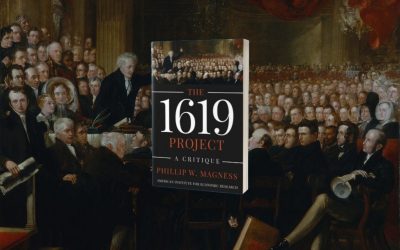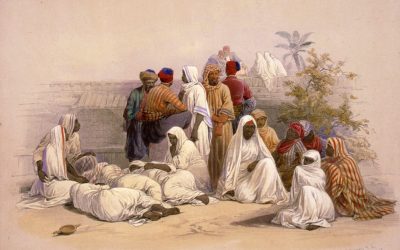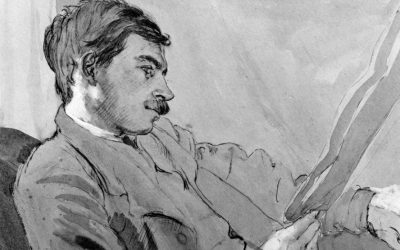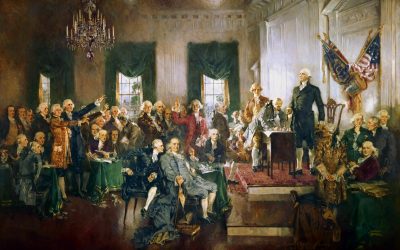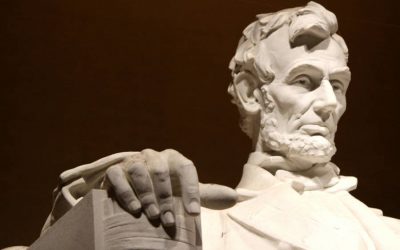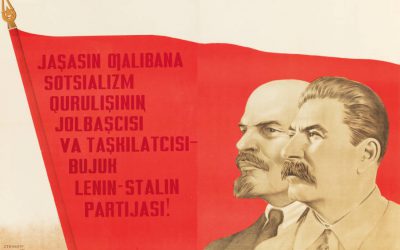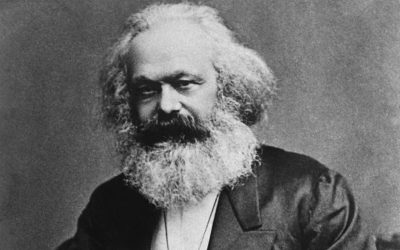The Biden Administration’s 2023 budget bill proposing a “billionaire tax,” imposing a 25-percent minimum rate on the “unrealized capital gains” of the wealthiest Americans is unconstitutional.
Phillip W. Magness
National Conservatives, the American System, and the Founders
While Hamilton, who died in a duel in 1804, did indulge protectionist arguments during his stint as Secretary of the Treasury, the rebranding of Jefferson and Madison as American System enthusiasts runs directly contrary to historical evidence.
1619 Project Sadly Undermined by the Lack of Academic Integrity of Its Founder
Hannah-Jones’s behavior illustrates the absence of basic scholarly integrity from her approach to writing history.
Myth of “Adjunctification” and Disappearing Tenure in Higher Education
Tenure is at best a mixed bag – sometimes it protects the already-employed, but at other times it means that candidates with unpopular views are never offered employment or promotion in the first place.
Dr. Fauci’s Mutating Covid Advice
In just under a year’s time, Fauci’s messaging on reinfection and herd immunity has now mutated across dozens of variants of its own, each conveniently aligning with his political messaging of the moment.
The Primary Obstacle To COVID-19 Mass Vaccination is Not The Free Market But Government Regulation
The effort to get vaccinated is akin to sitting at the back of a 9-month long DMV line. Welcome to vaccine central planning.
Bureaucrat Anthony S. Fauci Was Duplicitous on the AIDS Epidemic Too
It’s time to stop listening to Fauci, and time to stop treating his wildly inconsistent political posturing as if it carries any scientific authority.
Dr. Anthony S. Fauci’s Political Posturing In The Name of Science
It’s time to stop listening to Fauci, and time to stop treating his wildly inconsistent political posturing as if it carries any scientific authority.
12 Times Lockdowners Were Wrong
This has been a year of astonishing policy failure. We are surrounded by devastation conceived and cheered by intellectuals and their political handmaidens.
Should American K-12 Schools Teach The 1619 Project?
The 1619 Project is still ill-suited for K-12 education. That is a judgement we may make on its scholarly shortcomings alone.
Capitalism vs. Slavery
Similarities between slavery and socialism, and indeed the aggressive anti-capitalist rhetoric of proslavery ideology, are seldom examined in the “New History of Capitalism” literature.
Books: The 1619 Project: A Critique
The 1619 Project sacrifices scholarly standards in the service of the ideological agenda.
John Maynard Keynes’s Vision of the Future
Keynes’s futuristic vision also entailed a scientifically planned world of human heredity, ordered around a state policy of eugenics.
New York Times’ Politically Weaponized 1619 Project: An Epitah
The reputation of the 1619 project’s other essays, many of them entirely unobjectionable adaptations of scholarly insights for a popular audience, has suffered because of the NY Times’ inflexible refusal to address erroneous historical claims in the essays by Hannah-Jones and Desmond.
What 1619 Project’s Critics Get Wrong about Lincoln
While Lincoln’s colonization remarks grate the modern ear, and evince a patronizing paternalism toward the program’s intended participants, they also reflect the sincerity of his anti-slavery beliefs and an accompanying recognition that white-supremacist violence would not end with the formal abolition of the institution.
The Strange World of Ivan Ivanov
A short yet hard-hitting indictment of the economic and political repression that so often follows from attempts to structure a society around Marxist ideology and centralized economic planning.
Fact Checking the New York Times’ 1619 Project and Its Critics
Was the American Revolution fought in defense of slavery? Was Abraham Lincoln a racial colonizationist or exaggerated egalitarian? Did slavery drive America’s economic growth and the emergence of American Capitalism? Did the 1619 Project seek adequate scholarly guidance in preparing its work?
1619 Project “New History” of Capitalism Collapses Under Scrutiny
Far from representing non-white scholarly voices and introducing challenges to a previously stagnant historiography of slavery, the NHC school is actually a stunning embodiment of everything it charges against its critics.
Why Free-Market Economists and Historians Should Study Karl Marx
Karl Marx’s stubborn political staying power also requires that we grapple with his theory in an intelligent fashion and that we engage him seriously even if we judge his conclusions wanting.
The Dark Side In the History of the Swedish Welfare State
There’s a neglected dark side to the Swedish welfare model that its “democratic socialist” admirers seldom mention.
Like this content? Subscribe to support our work — it's free.
Read by students, professors, and citizens, Capitalism Magazine provides over 9,000 free to read articles and essays from pro-reason, individual rights perspective. 100% independent.
No spam. Unsubscribe anytime.


